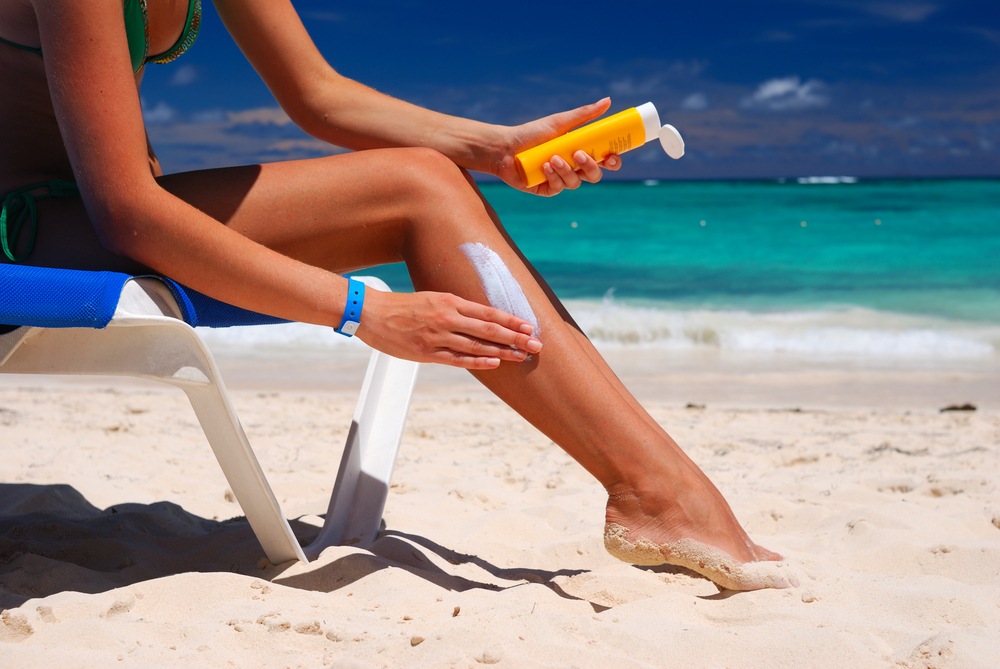Is It Sun Rays Or Sunscreen Use That Causes Cancer?
Did you know that despite the invention of sunscreen, cases of skin cancers are on the rise every year. Elizabeth Plourde, PhD, is a California-based scientist who has shown that malignant melanoma and all other skin cancers increased significantly with ubiquitous sunscreen use over a 30-year period. Sunscreens contain chemicals that are known carcinogens and endocrine-disrupting chemicals (EDC).
So why so much faith in sunscreen? What’s going on here? Sunscreen is a product we’ve been sold that we cannot live without. But just think about what we did for the thousands of years before it’s invention. The sun has been a source for life since the beginning of human existence and has many benefits to the human body.
The Sun Doesn’t Harm Us
Firstly I want to say that the sun doesn’t harm us. It only nourishes us. There’s even really good science to prove this. One of the latest major studies was published by the Karolinska Institute in Sweden in 2014.
They conducted a study that found women who avoided lying out in the sun were actually TWICE as likely to die compared to those who make sunbathing a daily ritual.
This wasn’t a small study either. It looked at 30,000 women for a period of 20 years!
I have a few issues on why I think sunscreen is a problem that I’ll go through here…
The A’s And B’s Of Sun Rays
We often hear about the different types of sun rays, so here’s the low down.
Ultraviolet B rays (UVB) are the primary cause of sunburn and non-melanoma skin cancers such as squamous cell carcinoma (von Thaler 2010). The chemicals that form a product’s sun protection factor are aimed at blocking those UVB rays.
Ultraviolet A rays (UVA) penetrate deeper into the skin and are harder to block. Scientists know less about the dangers of UVA radiation and this could potentially be very dangerous. The general consensus now is that whilst UVA ray damage is much less obvious than UVB, it is probably a lot more serious!!
False Sense Of Security
A sunscreen lotion’s SPF rating has little to do with the product’s ability to shield the skin from UVA rays (this is because UVA and UVB protection do not harmonize). High-SPF products suppress sunburn from UVB but not other types of sun damage. Therefore they tend to lull users into staying in the sun longer and overexposing themselves to both UVA and UVB rays.
So because people think they are ‘protected’ they tend to extend their time in the sun well past the point when users of low-SPF products or natural oils head indoors. As a result, while the users of conventional sunscreen may get less UVB-inflicted sunburns as unprotected sunbathers, they are more likely to absorb more damaging UVA radiation (which studies are still inconclusive as to the cancer causing effects).
Philippe Autier, a scientist formerly with the International Agency for Research on Cancer and part of the World Health Organization, has conducted numerous studies on sunbathers and believes that high-SPF products spur “profound changes in sun behaviour” that may account for the increased melanoma risk found in some studies. We can now spend the whole day at the beach without having to retreat to cover.
I personally will lay in the sun no more than 15-20 minutes each side, but do this at least 3-5 times a week to get the benefits of the sun whilst avoiding over exposure.
More Chemicals Than You Bargained For
High SPF products require higher concentrations of sun-filtering chemicals than low SPF sunscreens or natural oils. Some of these ingredients may pose health risks when they penetrate the skin. They have been linked to tissue damage, potential hormone disruption and may trigger allergic skin reactions.
If studies showed that high SPF products were better at reducing skin damage and skin cancer risk, then perhaps this extra chemical exposure might be justified. But since they don’t offer any benefit, then choosing alternative sunscreens really start to look a whole lot more appealing.
Natural Sun Protection
When we are outside the light that comes into our eyes sends signals to the pituitary gland which triggers hormones to be released for skin protection. The last time I checked we didn’t have sunglasses for the last few million years, so what if by wearing them you are also telling your brain you are indoors – when really you are in direct sunlight. Then your body is not sending the proper protection to your skin? Now there’s a thought.
The more we try to fool nature with chemicals the more cancer and other sickness shows up. Often the stress surrounding these health concerns is more detrimental than the issue itself. Health is simple and always has been.
At least let kids go out and play in the sun to develop enough Vitamin D before slathering all those chemicals on them.
From Tyler Tolman Blog


